There’s no need to fret over the future of desktop Linux; Raspberry Pi has that covered. It’s expanding the future of Linux in other ways as well. Let me explain.
At this very moment, thousands of children are hard at work tinkering with wires and connecting circuits to watch lights flicker on and off. They are typing lines of Python and are awestruck as a robotic arm comes to life for the first time. Smiles are widening on each child’s face as new boundaries are being crossed and experiments are taking shape. Linux has brought this joy into the lives of each of these children. How? Through the small but very powerful computer called the Raspberry Pi.
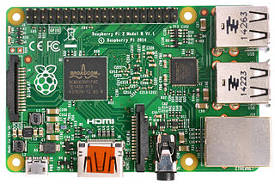
Photo by Multicherry
How is the Raspberry Pi expanding the future of Linux? When it comes to learning the craft of creating code, there are several beautifully crafted frameworks that can get children up to speed faster than any IDE or code book. First and foremost is the programming language Scratch. This language, created by the Lifelong Kindergarten group out of MIT, is geared towards teaching children how to program through an easy to navigate drag-and-drop interface. This interface allows the user to see their code come to life much more quickly than they would through a text editor or an IDE, which is exactly what is needed for a child’s attention span.
In addition to hosting a Raspberry Pi meetup in Washington D.C., Isaac Carter is a co-host on mintCast. He’s also a software engineer who enjoys working with Java, JavaScript, and GNU/Linux. When he’s not coding, you can find him reading on any number of subjects or on the golf course.

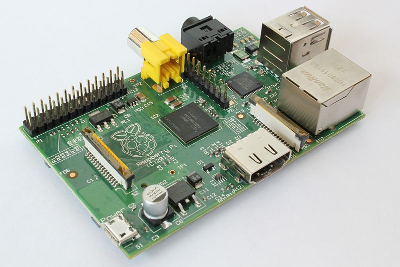

 We were an AM show but there was also an FM show going on at the same time in the next room, with a wall of plate glass window separating the AM and the FM folks. Often, we would cut up and the audience had no idea that the FM guy was silently doing outlandish things for the AM folks entertainment. We’re gonna leave it at “outlandish.” Sometimes, it went just a tad bit farther than that.
We were an AM show but there was also an FM show going on at the same time in the next room, with a wall of plate glass window separating the AM and the FM folks. Often, we would cut up and the audience had no idea that the FM guy was silently doing outlandish things for the AM folks entertainment. We’re gonna leave it at “outlandish.” Sometimes, it went just a tad bit farther than that.
 The thing that is worrying or bothering you? Jump ahead 24 hours in your mind. What will you most likely be doing? Does that thing you are worrying about now have any bearing on your life 24 hours later? Has that thing you are worrying about followed you? Has worrying about it made it better or go away? No? Then stop worrying. If what you are worrying about isn’t going to be important 24 hours from now, just stop it. Stop injuring yourself. And for those who don’t realize it…worry can often lead to anger. In fact, it most often does.
The thing that is worrying or bothering you? Jump ahead 24 hours in your mind. What will you most likely be doing? Does that thing you are worrying about now have any bearing on your life 24 hours later? Has that thing you are worrying about followed you? Has worrying about it made it better or go away? No? Then stop worrying. If what you are worrying about isn’t going to be important 24 hours from now, just stop it. Stop injuring yourself. And for those who don’t realize it…worry can often lead to anger. In fact, it most often does.


 Meanwhile, in the world of free tech…
Meanwhile, in the world of free tech…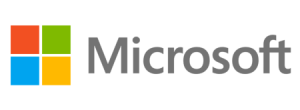
 Although some have been trying to sound the alarm, many of us have been lulled into complacency brought by a belief that Microsoft is no longer a real threat and that we are now free to concentrate all of our energies on growing Linux and FOSS, which is basically all we’ve wanted to do.
Although some have been trying to sound the alarm, many of us have been lulled into complacency brought by a belief that Microsoft is no longer a real threat and that we are now free to concentrate all of our energies on growing Linux and FOSS, which is basically all we’ve wanted to do.
 My oldest daughter is my child from the most intense relationship I could ever imagine. While many would construe that as a good thing, I will remind you that there are two poles to every magnet. Should one be of greater strength or impact than the other, theoretically anyway, havoc will reign. Trust me…we proved that theory without doubt. Unfortunately, and by my own hand and taking full responsibility; that relationship imploded, which in itself is ironic, since my military occupational specialty was precision-drop demolitions. We separated and she did the smart thing by returning to Germany. My life had become emotionally unstable, to the point of being chaotic, so she took our baby home and I lost contact with her. Along with that, I lost contact with my oldest daughter. She was less than two years old the last time I saw her.
My oldest daughter is my child from the most intense relationship I could ever imagine. While many would construe that as a good thing, I will remind you that there are two poles to every magnet. Should one be of greater strength or impact than the other, theoretically anyway, havoc will reign. Trust me…we proved that theory without doubt. Unfortunately, and by my own hand and taking full responsibility; that relationship imploded, which in itself is ironic, since my military occupational specialty was precision-drop demolitions. We separated and she did the smart thing by returning to Germany. My life had become emotionally unstable, to the point of being chaotic, so she took our baby home and I lost contact with her. Along with that, I lost contact with my oldest daughter. She was less than two years old the last time I saw her. The good guys and gals at Linux Mint are on a roll, with three long-term support (LTS) releases in a row. It all started back in May of last year, with the release of 17.0, called Qiana, followed in January by
The good guys and gals at Linux Mint are on a roll, with three long-term support (LTS) releases in a row. It all started back in May of last year, with the release of 17.0, called Qiana, followed in January by 
 Welcome to the team, Hunter!
Welcome to the team, Hunter!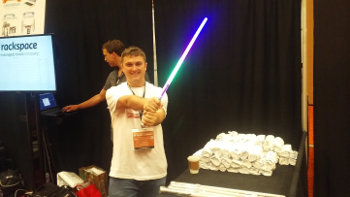
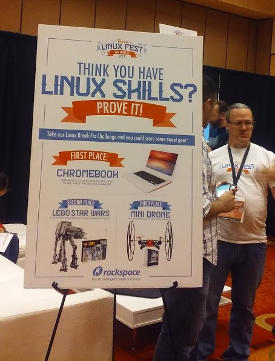 But this year was okay as far as travel went. It was held in San Marcos Texas, the home of Texas State University. You can’t get more “in between” Austin and San Antonio than that. Personally, I think the miracle-working staff for TLF should think about making this their permanent home. Being between two of the four largest cities in Texas, people from each don’t think twice about making the drive, as opposed to those that would have to drive to Dallas or the Metroplex.
But this year was okay as far as travel went. It was held in San Marcos Texas, the home of Texas State University. You can’t get more “in between” Austin and San Antonio than that. Personally, I think the miracle-working staff for TLF should think about making this their permanent home. Being between two of the four largest cities in Texas, people from each don’t think twice about making the drive, as opposed to those that would have to drive to Dallas or the Metroplex.